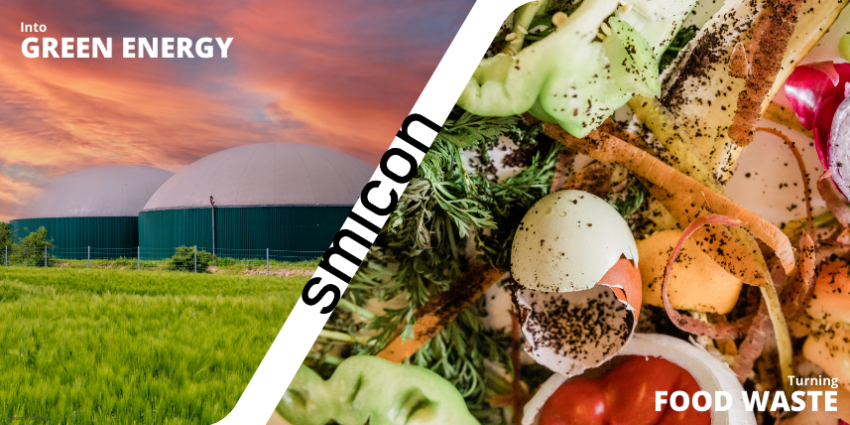We
- Mission & vision
- History
- Distributors
- News
- Vacatures & stage
Contact
SMICON
Peelstraat 5a
5446 NA Wanroij
The Netherlands
![]() +31 (0)485 45 33 96
+31 (0)485 45 33 96
![]() info@smicon.nl
info@smicon.nl


Imagine a world where every piece of discarded food contributes to climate change, releasing harmful greenhouse gases into the atmosphere. Unfortunately, this is not just a dystopian vision but a present reality. Around 10% of food made available to EU consumers—spanning retail, food services, and households—is wasted (Eurostat, 2023). The impact of this waste is profound, worsening global warming and straining our planet's resources.
Food waste is an inevitable part of our lives because people need nutrition, and not all food can be consumed. At Smicon, we believe in the importance of preventing food waste where possible. However, when avoidance isn't an option, we see this challenge as an opportunity. By transforming food waste into renewable energy, we aim to play a pivotal role in combating climate change and promoting a sustainable future. Our innovative technologies are designed to convert organic waste into valuable biogas, ensuring that nothing goes to waste.
The quality of the input material is crucial for maximizing biogas production yield. Higher quality organic waste leads to more efficient biogas generation, ensuring that we make the most out of the waste we process. By carefully preparing input materials, we enhance the efficiency and output of biogas production systems. Check out this project for more info about our machines.
One of the standout features of biogas is its flexibility and functionality. Unlike electricity, biogas is much easier to store, allowing for electricity to be produced on-demand when needed. This flexibility is particularly beneficial for balancing energy supply and demand, making biogas a reliable source of renewable energy.
Upgraded biogas, also known as biomethane, can be injected into the gas grid, fulfilling the same roles as natural gas. This makes biomethane a versatile and sustainable alternative to fossil fuels, contributing to a cleaner energy future. Additionally, the use of biomethane in the transport sector can significantly reduce CO2 emissions, with vehicles running on pure biomethane emitting around 90% less CO2 compared to those running on fossil fuels.
The by-product of biogas production, known as digestate, retains all the (micro)nutrients from the feedstock. This makes digestate an excellent high-quality fertilizer, contributing to sustainable agriculture by enriching the soil and reducing the need for chemical fertilizers.
Biogas also offers year-round heat energy, which can be utilized in various applications such as heating community buildings, swimming pools, greenhouses, and running cooling systems or other industrial operations. This versatility enhances the overall value of biogas as a renewable energy source.
At Smicon, we are committed to providing broad solutions that transform waste into valuable resources. Our cutting-edge depackaging machines are designed to maximize efficiency and to create the cleanest and most suitable input for biogas production. By turning food waste into biogas, we contribute together with you to give food waste a second life and promote a circular economy at the same time.